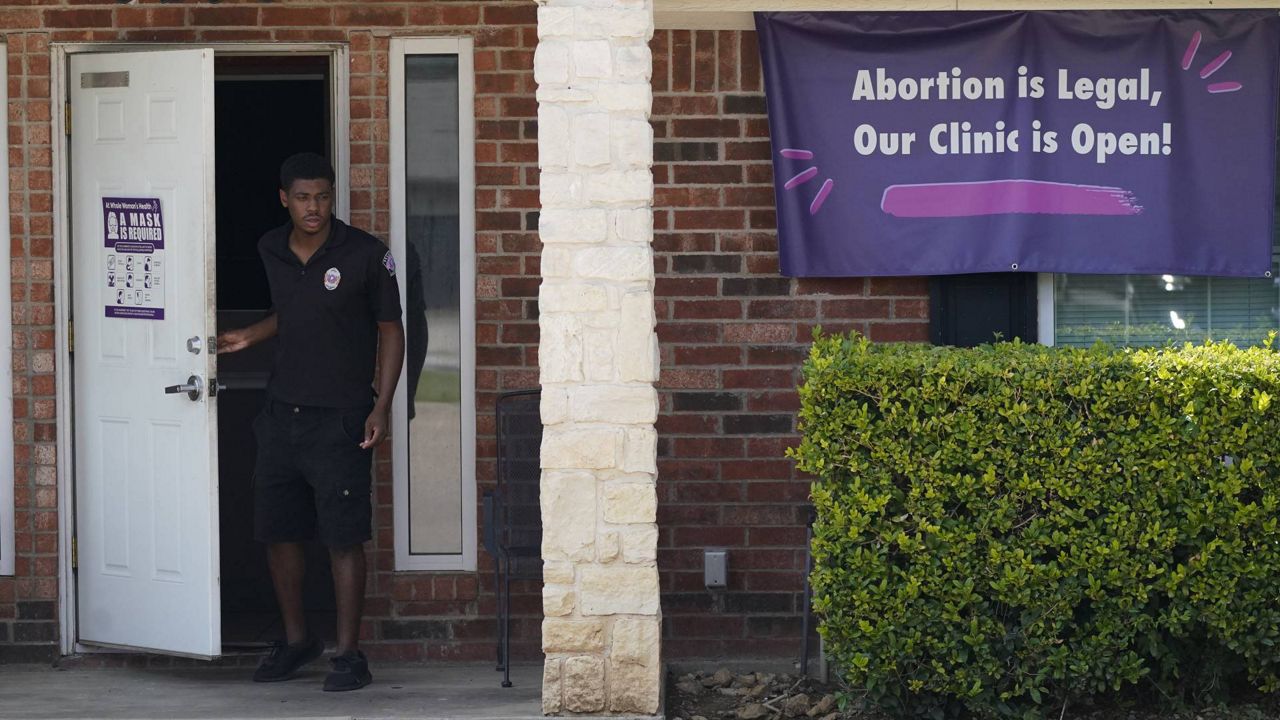A new study from the University of Texas at Austin shows nearly 1,400 Texas women sought abortions outside the state following the implementation of Senate Bill 8, Texas’ highly restrictive abortion law.
According to UT researchers, between September and December 2021, an average 1,391 Texans per month got abortions at out-of-state facilities, and monthly totals ranged from 1,330 to 1,485.
The study additionally found that 45% of Texans who sought abortion care in the specified months did so in Oklahoma. This is despite the fact that Oklahoma only has four facilities that provide abortions.
One in four Texans who sought out-of-state abortions did so in New Mexico.
Other destinations for abortion care include Colorado, Kansas, Arkansas, Mississippi and Louisiana. Researchers noted sometimes abortions have been obtained as far away as Illinois, Washington and Maryland.
The study notes that while abortions in the months following the implementation of SB8 fell by roughly 50%, there was no significant downward trend in the number of abortions between September and December 2021.
The UT study also looks at the difficulties of obtaining abortions out of state. For instance, researchers found that increased demand for the procedure due to SB8 as well as staffing shortages substantially increased wait times. About half of the facilities included in the study had wait times of two weeks or more.
In some cases, wait times forced those seeking an abortion to travel farther than they had intended for care.
For many women, traveling outside of Texas was made more difficult because they had to miss work or school and in some cases find child care while away. Gas, flights, hotel stays and food totaled in the hundreds of thousands for some abortion seekers.
Some women interviewed for the study reported they had been fired from a job or failed a class because of absence.
“SB 8 has not reduced the need for abortion care in Texas. Rather, it has greatly reduced in-state access and forced thousands of pregnant Texans to undertake long-distance trips to reach abortion facilities in other states. Out-of-state travel, in turn, has meant foregoing the emotional, logistical–and even medical–support that could be found closer to home,” the authors wrote of their conclusion.
The authors additionally mentioned previous studies that concluded that people who cannot overcome the challenges of seeking out-of-state abortions sometimes will attempt to end pregnancies by themselves. It will force others to continue their pregnancies, sometimes at the cost of their health and financial well-being.
“People living at or below the poverty level–many of whom are Hispanic/Latinx, Black, and other people of color, immigrant families who fear encounters with police and border enforcement, parents who have limited childcare options, and minors who cannot involve a parent in their care–are among those who face the greatest challenges traveling out of state,” the study reads.
Texas’ abortion law, the strictest in the nation, outlaws the procedure once cardiac activity can be detected in a fetus, which is often as soon as six weeks into pregnancy and before many women know they are pregnant.



